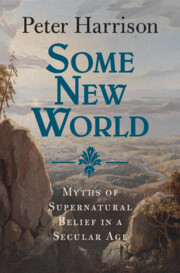5 - The Birth of the Supernatural
Published online by Cambridge University Press: 29 March 2024
Summary
This chapter gives an account of the origins of our present understanding of the natural/supernatural divide, showing how the terminology of the ‘supernatural’ first emerged in the Middle Ages and gradually assumed its modern form between the seventeenth and nineteenth centuries. The attendant ‘isms’—naturalism and supernaturalism—arrive at the end of this period, during the 1800s. The original context for the naturalism/supernaturalism distinction was neither science nor philosophy, but the sphere of biblical criticism. From there it was imported into a scientific context. The nineteenth century also witnessed attempts to reconstruct the history of science with a view to arguing for a long-standing alliance between naturalism and science. A more accurate portrayal of the relevant history shows, to the contrary, that ‘science’ had been consistently aligned with theistic assumptions about the regularities of nature. These regularities were formalised as laws of nature in the seventeenth century, at which time they were understood as divinely authored imperatives to which nature necessarily conformed. In the nineteenth century, what had originally been understood as expressions of the divine will were simply redescribed in purely naturalistic terms by advocates of naturalism. Ironically, they were now claimed to represent evidence against theistic readings of nature.
Keywords
- Type
- Chapter
- Information
- Some New WorldMyths of Supernatural Belief in a Secular Age, pp. 218 - 282Publisher: Cambridge University PressPrint publication year: 2024



